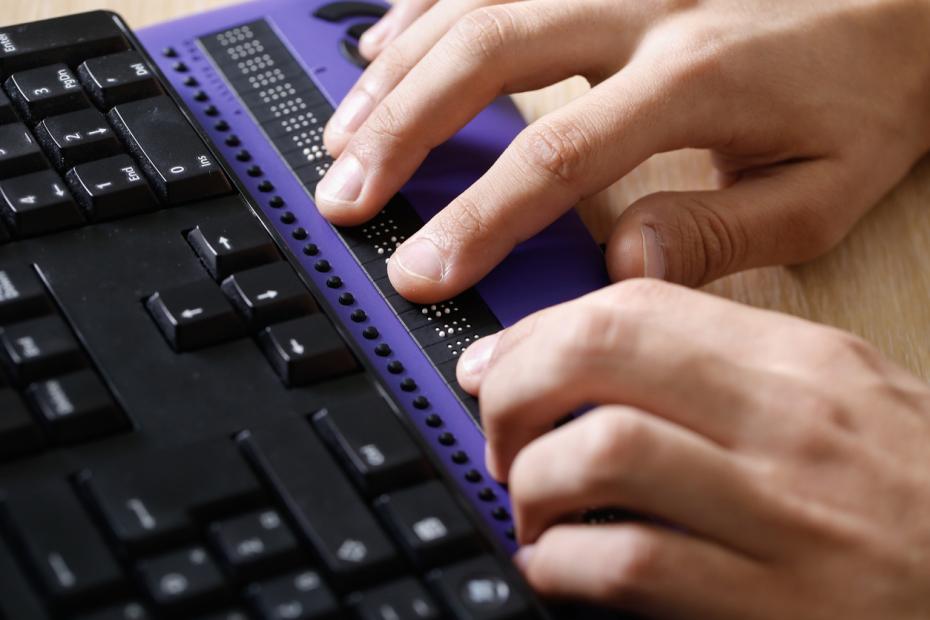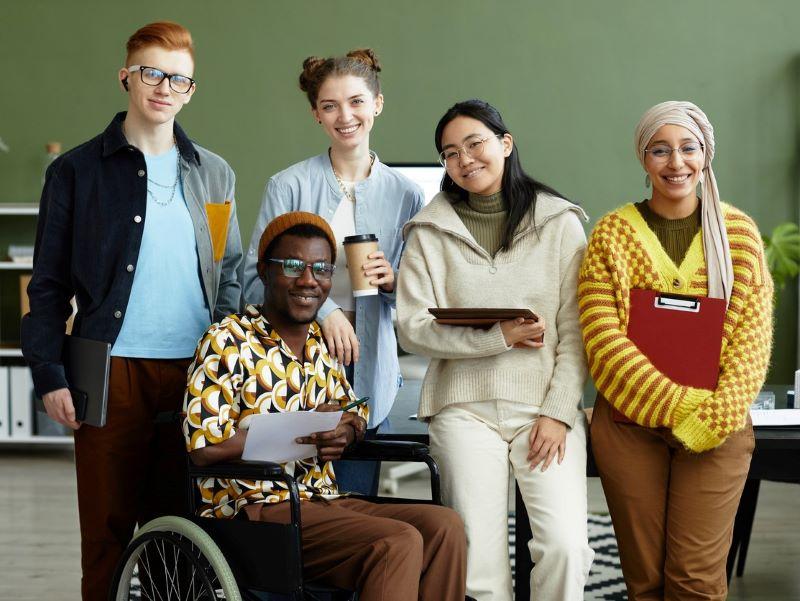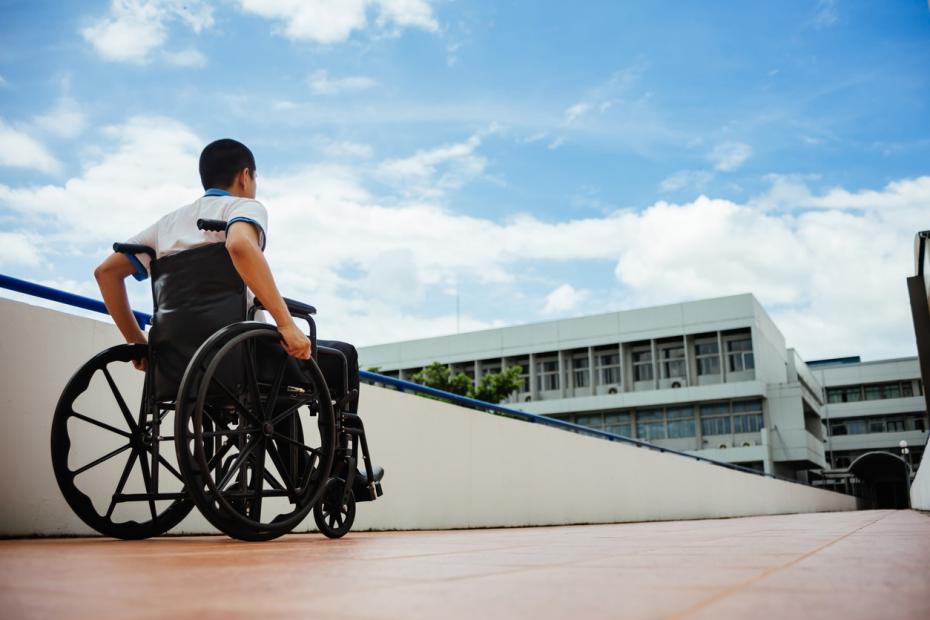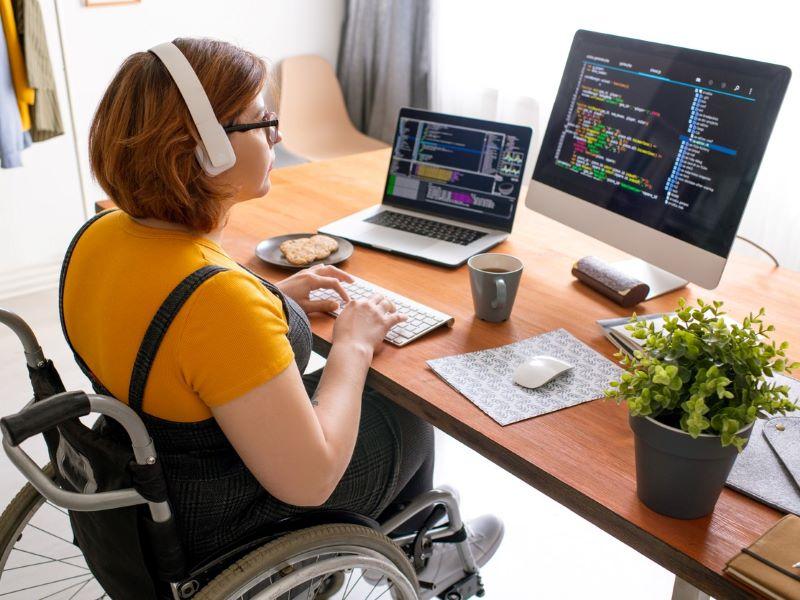
What I’ve learned from a decade of working with a disability in academia
Meredith Wilkinson gives her younger self advice on climbing the academic ladder in an able-bodied world, but also calls for greater support for academics with disabilities

You may also like
Popular resources
Of the 233,930 academics working in the UK, 6 per cent (14,040) report having a disability. When you consider professional rank, only 4 per cent (1,215) of senior academics have a known disability. Representation is important so that academics with disabilities can see that reaching the top levels of a higher education career is attainable. While we still have some way to go to ensure that more academics with a disability are seen in senior academic positions, we also need to acknowledge the journey those with disabilities working in academia go on and ensure we, as individuals and institutions, provide support to disabled colleagues.
- Where are the leaders with a disability in higher education?
- Listening, learning and responding to disabled students
- How to design remote courses with accessibility and inclusivity in mind
I’m among those 6 per cent and have learned a lot from my 10 years of climbing the academic ladder to become a senior lecturer with a disability. Much of it I wish I had known when I started, so here is the advice I would give to that younger version of myself. I hope it can help those starting out on their own journey and maybe offer some words of encouragement to those further along.
Anxiety is normal
When I enter a room full of new people, I know it is likely that I will be the only one with a visible disability. Over the years, this has caused me to feel anxiety owing to fear that I will be judged based on my disability before I get a chance to open my mouth. I have learned that such anxiety is normal. And I know now that part of my purpose in those spaces is to represent the rich tapestry of diversity that higher education has to offer and make sure that the voices in it are heard.
Don’t be afraid to ask for help
Internalised ableism is when those with disabilities internalise ableist thoughts. One way it has manifested for me is by preventing me from asking for help when I need it. However, when I have asked for help, I have found it beneficial and it even led to others developing strategies for the way they work. So ask for help! And for those of us experiencing internalised ableism, we should challenge it as best we can and reflect on how far we have come and how we have earned our place within this space.
Embrace technology
I probably did know this at the start, but as time progresses I have only recently become more interested in how technology can help me do my job more effectively. Much is said about the risks that AI poses to academic integrity, but this technology could also enhance the working environment for all staff in a very profound way. Text-to-speech software like Read&Write can aid many people on campus, including those with dyslexia or visual impairments, and can help cope with the extended periods of time we are now required to spend looking at screens. I would encourage you to explore different types of technology to find what might make your job easier.
Network both within your institution and externally
Networking at in-person events is not easy for everyone, be that due to a disability, caring responsibilities or other related reasons. However, the online networking that flourished during Covid has been a game-changer. And the UK’s National Association of Disabled Staff Networks’ online meetings provide a safe and supportive space for staff with disabilities. This is particularly useful if your university does not have a disabled staff network. Better yet, if they don’t, considering setting one up. LinkedIn also provides a good source of networking opportunities with people in your field, those working within equity, diversity and inclusion and other individuals with disabilities working in academia. Networking can help you to find mentors or other people to seek advice from. For me, meeting new people and hearing new perspectives has been crucial to my development.
See your disability as your strength
It’s often the case that when we look at successful senior leaders, we wonder how they did it. However, the idea that there is a formula to success is misguided. Every senior leader, disabled or not, will have had their own journey to the top. Living with a disability in an able-bodied world requires us to adopt innovative strategies for how we do things. This is a hugely valuable skill that can be applied to your work. For example, when I started my postdoc post we were still using paper and pen questionnaires. After a discussion and me mentioning how long it took me to enter numbers into Excel, we moved to an online data-collection tool. Don’t model what others do; rather, find a way that works for you and allows you to shine as your authentic self. You might be surprised by the impact you make.
We’re all trying to be the best academics we can be and that’s much more likely to happen when we empower each other. Although it can be challenging at times as an academic with a disability, especially when it comes to applying for things and taming our own inner critic, by working on self-development, seeking support from others and focusing our direction, we can reach our full potential.
Meredith R. Wilkinson is a senior lecturer in psychology, co-chair of the DisAbility and Wellbeing Network (DAWN) and EDI representative for the Institute for Psychological Sciences at De Montfort University.
If you would like advice and insight from academics and university staff delivered direct to your inbox each week, sign up for the Campus newsletter.


